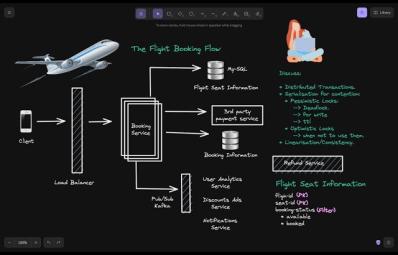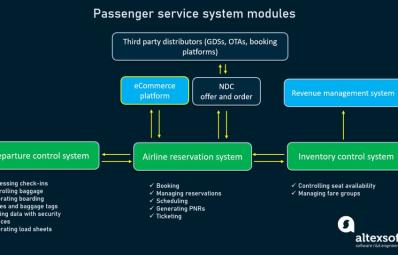Posted At: Feb 28, 2025 - 114 Views

Introduction
The real estate industry is undergoing a major transformation with the adoption of data science and machine learning. Companies like RealDirect, a real estate technology firm founded in 2010, are leveraging AI-driven insights to enhance market segmentation, pricing strategies, fraud detection, and customer recommendations.
This study explores the impact of clustering, classification, association rule mining, and anomaly detection in revolutionizing real estate decision-making.
🚀 Download the Full Report (PDF): Click Here
1. Clustering for Real Estate Market Segmentation
📌 Key Insight: Clustering helps categorize properties and buyers based on attributes like location, price, and preferences.
🔹 How Clustering Benefits Real Estate:
✔ Groups properties based on size, amenities, and market demand.
✔ Helps in targeted marketing campaigns to attract the right buyers.
✔ Reduces the mismatch between property offerings and buyer preferences.
🔹 Example: Using K-Means Clustering
✔ K-Means clustering can categorize properties into luxury, mid-range, and budget-friendly segments.
✔ Helps real estate agents customize marketing strategies for different buyer demographics.
💡 Takeaway: Data-driven segmentation allows real estate firms to personalize their marketing strategies, increasing conversion rates.
2. Classification for Predictive Property Insights
📌 Key Insight: Machine learning models can predict property prices, sales trends, and buyer behavior.
🔹 How Classification Models Improve Decision-Making:
✔ Helps sellers set competitive property prices based on real-time data.
✔ Enables buyers to evaluate market trends before making purchase decisions.
✔ Enhances investment strategies by predicting real estate market fluctuations.
🔹 Example: Decision Trees & Random Forest Models
✔ Decision trees classify properties based on price, location, and market trends.
✔ Random forest models predict whether a property will sell within a given price range.
💡 Takeaway: Real estate businesses that adopt predictive models can optimize pricing strategies and maximize profitability.
3. Association Rule Mining for Personalized Recommendations
📌 Key Insight: Analyzing historical data helps identify buying patterns and improve property recommendations.
🔹 How Association Rule Mining Benefits Real Estate:
✔ Identifies common buyer preferences based on past transactions.
✔ Enables realtors to cross-sell properties & services effectively.
✔ Helps improve customer experience by offering relevant property options.
🔹 Example: Using the Apriori Algorithm
✔ If a buyer searches for a 3-bedroom apartment in an urban area, the system recommends similar properties based on historical buying trends.
✔ Helps real estate platforms suggest financing options and other related services.
💡 Takeaway: AI-driven property recommendations increase customer engagement and improve the likelihood of closing deals.
4. Anomaly Detection for Fraud Prevention in Real Estate
📌 Key Insight: Detecting fraudulent transactions enhances trust and security in real estate transactions.
🔹 How Anomaly Detection Enhances Fraud Prevention:
✔ Identifies irregular transaction patterns that may indicate fraud.
✔ Flags suspicious property listings for further investigation.
✔ Prevents fake property listings, financial fraud, and price manipulation.
🔹 Example: Using the Isolation Forest Algorithm
✔ Isolation forests detect unusual spikes in property pricing or fake listings.
✔ Helps protect both buyers and sellers from fraudulent activities.
💡 Takeaway: AI-powered fraud detection increases customer confidence and maintains platform integrity.
5. Practical Applications of Data Science in Real Estate
✔ Real Estate Platforms: AI-powered pricing models help determine property values.
✔ Investment Firms: Predictive analytics assess market risks & ROI.
✔ Realtors & Brokers: Data-driven marketing targets the right buyers with personalized ads.
✔ Government & Urban Planners: Clustering identifies high-growth areas for real estate development.
💡 Best Practice: Integrating AI & data science into real estate operations enhances efficiency, decision-making, and customer trust.
Conclusion
The adoption of data science in real estate is reshaping the industry by improving market segmentation, property pricing, fraud detection, and customer recommendations. Companies that leverage AI-driven insights will gain a competitive edge, optimize sales strategies, and enhance buyer experiences.
📥 Download Full Report (PDF): Click Here
Related Real Estate & Data Science Resources 📚
🔹 How AI is Transforming Real Estate Market Predictions
🔹 Top Data Science Applications in the Housing Market
🔹 Machine Learning for Real Estate Investment Analysis
📌 Need expert insights on real estate technology? 🚀 Our professional writers at Highlander Writers can assist with market research, AI integration strategies, and real estate analytics!
Leave a comment
Your email address will not be published. Required fields are marked *










